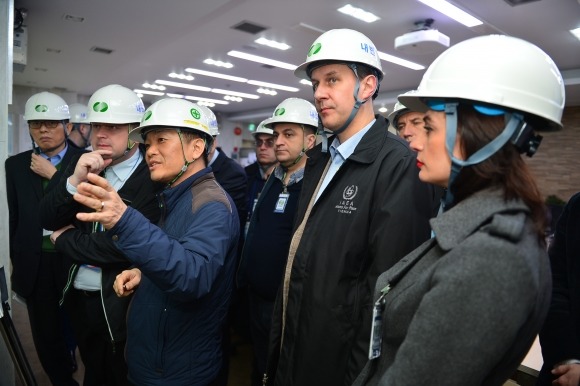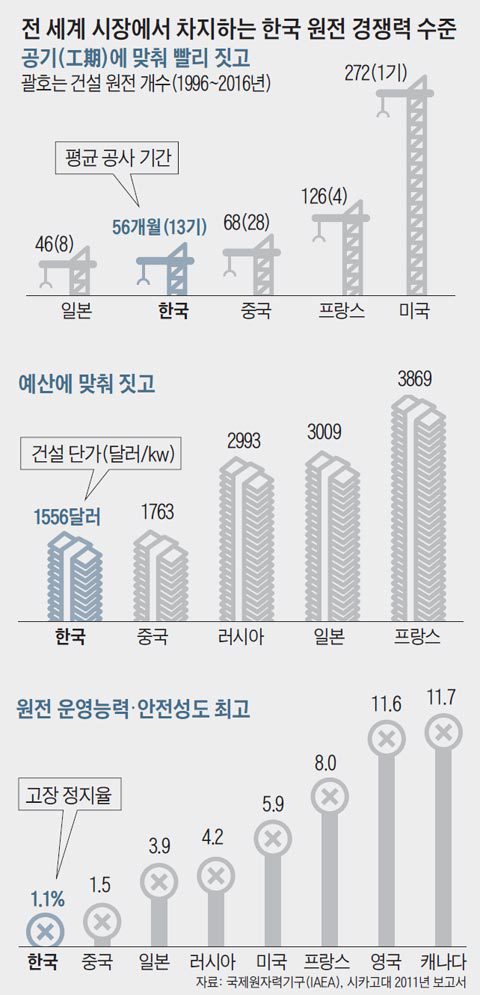Michael Shellenberger (born 1971) is a journalist and author. He has co-edited and written a number of books, including
"The Death of Environmentalism: Global Warming in a Post-Environmental World"[
edit]
In 2004 Nordhaus and Shellenberger co-authored "The Death of Environmentalism: Global Warming Politics in a Post-Environmental World." The paper argued that environmentalism is incapable of dealing with climate change and should "die" so that a new politics can be born.
Former
Sierra Club Executive Director Carl Pope called the essay "unclear, unfair and divisive." He said it contained multiple factual errors and misinterpretations. However, former Sierra Club President
Adam Werbach praised the authors' arguments.
[32]Former
Greenpeace Executive Director John Passacantando said in 2005, referring to both Shellenberger and his coauthor Ted Nordhaus, "These guys laid out some fascinating data, but they put it in this over-the-top language and did it in this in-your-face way."
[33]Michel Gelobter and other environmental experts and academics wrote The Soul of Environmentalism: Rediscovering transformational politics in the 21st century in response, criticizing "Death" for demanding increased technological innovation rather than addressing the systemic concerns of people of color.
[34]Break Through: From the Death of Environmentalism to the Politics of Possibility[
edit]
In 2007 Shellenberger and Nordhaus published
Break Through: From the Death of Environmentalism to the Politics of Possibility. The book is an argument for what its authors describe as a positive, "post-environmental" politics that abandons the environmentalist focus on nature protection for a new focus on technological innovation to create a new economy. They were named
Time magazine Heroes of the Environment (2008) after writing the book,
[35][36] and received the 2008 Green Book Award from the science journalist
John Horgan.
[11]The Wall Street Journal wrote that, "If heeded, Nordhaus and Shellenberger's call for an optimistic outlook -- embracing economic dynamism and creative potential -- will surely do more for the environment than any U.N. report or Nobel Prize."
[37]However, academics Julie Sze and Michael Ziser argued that Break Through continued the trend Gelobter pointed out related the authors' commitment to technological innovation and capital accumulation instead of focusing on systemic inequalities that create environmental injustices. Specifically Sze and Ziser argue that Nordhaus and Shellenberger's "evident relish in their notoriety as the 'sexy' cosmopolitan 'bad boys' of environmentalism (their own words) introduces some doubt about their sincerity and reliability." The authors asserted that Shellenberger's work fails "to incorporate the aims of
environmental justice while actively trading on suspect political tropes," such as blaming China and other Nations as large-scale polluters so that the United States may begin and continue Nationalistic technology-based research-and-development environmentalism, while continuing to emit more
greenhouse gases than most other nations. In turn, Shellenberger and Nordhaus seek to move away from proven Environmental Justice tactics, "calling for a
moratorium" on "community organizing." Such technology-based "approaches like those of Nordhaus and Shellenberger miss entirely" the "structural environmental injustice" that natural disasters like
Hurricane Katrina make visible. Ultimately, "Shellenberger believes that community-based environmental justice poses a threat to the smooth operation of a highly capitalized, global-scale Environmentalism."
[38]An Ecomodernist Manifesto[
edit]
In April 2015, Shellenberger joined a group of scholars in issuing
An Ecomodernist Manifesto. It proposed dropping the goal of “sustainable development” and replacing it with a strategy to shrink humanity’s footprint by using natural resources more intensively through technological innovation. The authors argue that economic development is necessary to preserve the environment.
[39][40]An Ecomodernist Manifesto was met with critiques similar to Gelobter's evaluation of "Death" and Sze and Ziser's analysis of Break Through. Environmental historian Jeremy Caradonna and environmental economist
Richard B. Norgaard led a group of environmental scholars in a critique, arguing that Ecomodernism "violates everything we know about ecosystems, energy, population, and natural resources," and "Far from being an ecological statement of principles, the Manifesto merely rehashes the naïve belief that technology will save us and that human ingenuity can never fail." Further, "The Manifesto suffers from factual errors and misleading statements."
[15]Environmental and Art historian
T.J. Demos agreed with Caradonna, and wrote in 2017 that the Manifesto "is really nothing more than a bad utopian fantasy," that functions to support oil and gas industry and as "an apology for nuclear energy." Demos continued that "What is additionally striking about the Ecomodernist document, beyond its factual weaknesses and ecological falsehoods, is that there is no mention of social justice or democratic politics," and "no acknowledgement of the fact that big technologies like nuclear reinforce centralized power, the military-industrial complex, and the inequalities of corporate globalization."
[14]Apocalypse Never: Why Environmental Alarmism Hurts Us All[
edit]
In June 2020, Shellenberger published Apocalypse Never: Why Environmental Alarmism Hurts Us All, in which the author argues that climate change is not the existential threat it is portrayed to be in popular media and activism. Rather, he posits that technological innovation and capital accumulation, if allowed to continue and grow, will remedy environmental issues. According to Shellenberger, the book "explores how and why so many of us came to see important but manageable environmental problems as the end of the world, and why the people who are the most apocalyptic about environmental problems tend to oppose the best and most obvious solutions to solving them."
[4]Before publication the book received favourable reviews from the climate scientists
Tom Wigley and
Kerry Emanuel, and from environmentalists such as
Steve McCormick and
Erle Ellis,
[41] but reviews after publication were mixed.
[11] For example, Emanuel said that while he did not regret his original positive review, he wished that "the book did not carry with it its own excesses and harmful baggage.”
[42][43] In
The Wall Street Journal John Tierney wrote that "Shellenberger makes a persuasive case, lucidly blending research data and policy analysis with a history of the green movement",
[44] and favorable reviews were also published in the
Financial Times[45] and
Die Welt.
[46]However, in reviewing Apocalypse Never for Yale Climate Connections, Environmental Scientist
Peter Gleick argued that "bad science and bad arguments abound" in 'Apocalypse Never', writing that "What is new in here isn't right, and what is right isn't new."
[13] Similarly, a 2020 Forbes article by Shellenberger, in which he promotes his book, has been analyzed by seven academic reviewers and one editor from the
Climate Feedback fact-checking project; the reviewers conclude that Shellenberger "mixes accurate and inaccurate claims in support of a misleading and overly simplistic argumentation about climate change."
[12] Shellenberger responded in a piece published at
Environmental Progress, a publication he founded.
[47] In a review for the
Los Angeles Review of Books environmental economist Sam Bliss said that while "the book itself is well written," Shellenberger "plays fast and loose with the facts" and "Troublingly, he seems more concerned with showing climate-denying conservatives clever new ways to own the libs than with convincing environmentalists of anything."
[36]See also[
edit]
Bright green environmentalismReferences[
edit]
- ^ Jump up to:a b c "PAGS Graduates in the Media, Academics". Earlham College. Richmond, IN. nd. Retrieved December 20, 2019.
- ^ Jump up to:a b Barringer, Felicity (6 February 2005). "Paper Sets Off a Debate on Environmentalism's Future". The New York Times. ISSN 0362-4331. Retrieved 26 April 2018.
- ^ "A manifesto for a Good Anthropocene". An Ecomodernist Manifesto. Retrieved 2016-01-26.
- ^ Jump up to:a b Shellenberger, Michael (30 June 2020). Apocalypse Never: Why Environmental Alarmism Hurts Us All. New York City, NY: HarperCollins. ISBN 978-0-06-300169-5.
- ^ "Orion Magazine - Evolve". Orionmagazine.org. Retrieved 13 August 2018.
- ^ Daren Samuelsohn, "Report: Treat climate change like 'Fight Club'," Politico, July 26, 2011
- ^ Lisa Friedman, "'Climate pragmatists' call for an end to Kyoto process" ClimateWire, July 26, 2011
- ^ Walsh, Bryan (July 26, 2011). "Fighting Climate Change by Not Focusing on Climate Change" – via content.time.com.
- ^ Ziser, Michael; Sze, Julie (2007). "Climate Change, Environmental Aesthetics, and Global Environmental Justice Cultural Studies". Discourse. 29 (2/3): 384–410. JSTOR 41389785.
- ^ Keith Kloor, "The Great Schism in the Environmental Movement," December 12, 2012
- ^ Jump up to:a b c Horgan, John (4 August 2020). "Does Optimism on Climate Change Make You Pro-Trump?". Scientific American. Retrieved 31 January 2021.
- ^ Jump up to:a b "Article by Michael Shellenberger mixes accurate and inaccurate claims in support of a misleading and overly simplistic argumentation about climate change". Climate Feedback. Retrieved 24 September 2020.
- ^ Jump up to:a b Gleick, Peter H. (15 July 2020). "Book review: Bad science and bad arguments abound in 'Apocalypse Never' by Michael Shellenberger". Yale Climate Connections. Yale Program on Climate Change Communication. Retrieved 24 September 2020.
- ^ Jump up to:a b Demos, TJ (2017). Against the Anthropocene: Visual Culture and Environment Today. MIT Press. pp. 46–49. ISBN 9783956792106.
- ^ Jump up to:a b Caradonna, Jeremy L.; Norgaard, Richard B.; Borowy, Iris (2015). "A Degrowth Response to an Ecomodernist Manifesto". Resilience.
- ^ Armstrong, David (5 August 1997). "Progressive PR". San Francisco Chronicle. Retrieved 26 April2018.
- ^ "New firm founded". PR Week. 2002-09-02.
- ^ Collier, Robert (21 August 2004). "Venezuelan politics suit Bay Area activists' talents". San Francisco Chronicle. Retrieved 26 April 2018.
- ^ Franke-Ruta, Garance (18 January 2006). "Remapping the Culture Debate". The American Prospect. Archived from the original on 25 December 2007. Retrieved 26 April 2018.
- ^ Totty, Michael (April 17, 2010). "Nuclear's Fall—and Rise" – via www.wsj.com.
- ^ Leonhardt, David (2012-07-21). "Opinion | A Ray of Hope on Climate Change". The New York Times. ISSN 0362-4331. Retrieved 2018-04-26.
- ^ Michael Shellenberger and Ted Nordhaus, "A Boom in Shale Gas? Credit the Feds," Washington Post, December 16, 2011
- ^ Kevin Begos, "Decades of Federal Dollars Helped Fuel Gas Boom," Associated Press, September 23, 2012
- ^ "Boundary conditions". June 16, 2012 – via The Economist.
- ^ Environmental Progress home page (accessed 1 July 2017
- ^ McDonnell, Tim (3 February 2016). "Closing This Nuclear Plant Could Cause an Environmental Disaster". Mother Jones. Foundation For National Progress. Retrieved 11 February 2016.
- ^ "Open letter: Do the right thing — stand-up for California's largest source of clean energy". Save Diablo Canyon. Retrieved 11 February 2016.
- ^ "State Nuclear Profiles: Illinois". U.S. Energy Information Administration. 26 April 2012. Retrieved 7 April 2016.
- ^ "EP open letter to New York PSC". Environmental Progress. 2016-07-14.
- ^ "Open letter to South Korean president Moon Jae-in". Environmental Progress. 2017-05-07.
- ^ Shellenberger, Michael (15 January 2020). "Full Committee Hearing - An Update on the Climate Crisis: From Science to Solutions". republicans-science.house.gov. Committee on Science, Space, and Technology. Retrieved 17 June 2020.
- ^ "Dead movement walking?". Salon.com. 14 January 2005. Retrieved 13 August 2018.
- ^ Barringer, Felicity (February 6, 2005). "Paper Sets Off a Debate on Environmentalism's Future". The New York Times.
- ^ Gelobter, Michel; Dorsey, Michael; Fields, Leslie; Goldtooth, Tom; Mendiratta, Anuja; Moore, Richard; Morello-Frosch, Rachel; Shepard, Peggy M.; Torres, Gerald (27 May 2005). "The Soul of Environmentalism Rediscovering transformational politics in the 21st century". Grist. Archived from the original on 11 July 2005.
- ^ Walsh, Bryan (24 September 2008). "Leaders and Visionaries: Ted Nordhaus and Michael Shellenberger". Time. Retrieved 31 January 2021.
- ^ Jump up to:a b Bliss, Sam (6 October 2020). "The Stories Michael Shellenberger Tells". Los Angeles Review of Books. Retrieved 31 January 2021.
- ^ Jonathan Adler, The Wall Street Journal, 27 November 2007, The Lowdown on Doomsday: Why the public shrugs at global warming
- ^ Ziser, Michael; Sze, Julie (2007). "Climate Change, Environmental Aesthetics, and Global Environmental Justice Cultural Studies". Discourse. 29 (2/3): 384–410. JSTOR 41389785.
- ^ "An Ecomodernist Manifesto". Ecomodernism.org. Retrieved April 17, 2015. A good Anthropocene demands that humans use their growing social, economic, and technological powers to make life better for people, stabilize the climate, and protect the natural world.
- ^ Eduardo Porter (April 14, 2015). "A Call to Look Past Sustainable Development". The New York Times. Retrieved April 17, 2015. On Tuesday, a group of scholars involved in the environmental debate, including Professor Roy and Professor Brook, Ruth DeFries of Columbia University, and Michael Shellenberger and Ted Nordhaus of the Breakthrough Institute in Oakland, Calif., issued what they are calling the "Eco-modernist Manifesto."
- ^ "Apocalypse Never". Reviews. HarperCollins. Retrieved 7 February 2021.
- ^ Emanuel, Kerry (2020-07-29). "MIT climate scientist Kerry Emanuel on energy and Shellenberger's 'Apocalypse' » Yale Climate Connections". Yale Climate Connections. Retrieved 2021-02-08.
- ^ Readfearn, Graham (2020-07-04). "The environmentalist's apology: how Michael Shellenberger unsettled some of his prominent supporters". the Guardian. Retrieved 2021-02-08.
- ^ Tierney, John (21 June 2020). "'Apocalypse Never' Review: False Gods for Lost Souls". The Wall Street Journal. Retrieved 7 February 2021.
- ^ Ford, Jonathan (18 September 2020). "Are cooler heads needed on climate change?". Financial Times. Retrieved 7 February 2021.
- ^ Stein, Hannes (20 June 2020). "Die Illusionen der Öko-Romantiker". Die Welt. Retrieved 7 February2021.
- ^ "Bad science and bad ethics in Peter Gleick's Review of "Apocalypse Never" at Yale Climate Connections". Environmental Progress. Retrieved 2020-08-07.
External links[
edit]
















 한삼희 수석논설위원
한삼희 수석논설위원